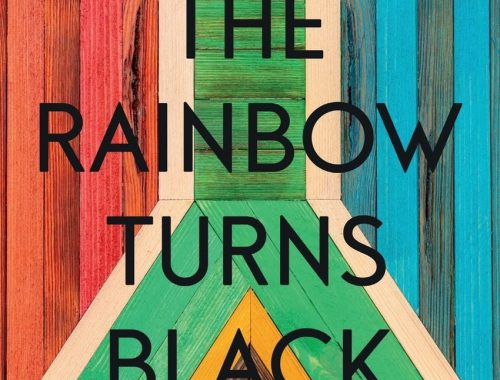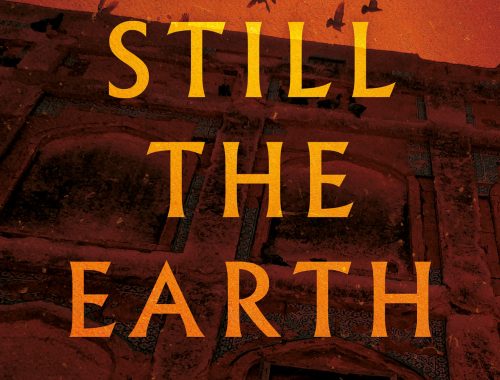Running Across the Sky

Three years into the civil war that has turned his country upside down, Sami’s home village in Syria is hit by a deadly bomb attack and he is forced to leave behind everything he knows and loves. Eventually, Sami and his family are given refuge in Coventry, England, but city life is hard to adjust to. It’s grey and cold and there are no fields to play in or animals to tend. Worse still, Sami worries about the fate of his uncle and cousins back in Syria and struggles to make new friends. In a bid to take his mind off his homesickness, Sami is introduced to Harry Adams, one of the elderly residents at the care home where his mum works. Although wary of one another at first, the pair gradually form a bond, as Harry tells Sami the story of the unusually named Splen and his dog Bobby, who lived through the Second World War and the infamous Coventry Blitz. As Sami discovers more about Splen and his dramatic escape from the horrors of conflict, the two unlikely friends make peace with their troubled pasts and forge a new sense of hope for the future.
The story started from a mad conversation with my then 11-year-old grandson Alfie. We were chatting about names and he came out with “what did Splen do?” to which I replied “Well something splendid I guess!” the name stayed in my head. He also told me that books about wizards and talking trees, and strange creatures bored him and he wanted to read about real people that were, sort of, like him. So I had to listen to my audience, stop writing the story with the magician and get real. So Splen was born. Sometimes a character will worm their way so deeply into your psyche you have to accept the inevitable and write them.
I set the book in the 1940s because I felt the word splendid was a bit old-fashioned and seemed to sit in that era rather well. Having decided on an era I then needed to pick an event. To be honest if you’d asked me, “would you write about WW2?” I think I would have been very negative about it as my setting, but sometimes when you write, things just happen. I picked the Blitz in Coventry because it was a one-off event, one night of extreme horror. Something almost biblical about the night when the bombers came. The more I read about it the more it drew me in. I toyed with the idea of using the canal as the main location. Having lived on a canal boat for 12 years it’s a subject close to my heart but somehow I couldn’t make that work.
Coventry is a place that has rebuilt its self from a devastated City to an ambassador for peace and reconciliation. It is a City where hope is abundant, a City that could offer a young Syrian refugee healing and a future. I really wanted that message to be the overwhelming theme of the story.
I needed to bring the present day in as it would give the story more impact and resonate with us now, bring history to life. Syria is sadly a perfect example of, “we never learn.” War is war no matter when or where it happens. There are some moments in the book that are harrowing but I don’t believe we should sugar coat everything. Children never cease to amaze me with their emotional intelligence. They get it, they see it again and again on the TV, but they also need hope.
I also wanted to explore the wonderful relationship between the very young and the old. They seem to enjoy each other’s company with no barriers. My grandchildren get on better with my mother than any of her children or her grandchildren! They’ll happily listen to her stories which we have all heard, probably too many times!
Most of my research was done on line, what a wonder tool! Reading first-hand experiences for both Coventry and Syria. The first-hand experiences of the children in the refugee camps are extraordinary. Some of them are breath-taking in their refusal to be beaten by their tragedies, some inevitably painful and very hard to read. And books, copious books. Visiting Coventry and The Blitz Experience Museum gave me such a sensory understanding and helped me to feel it, take me right into the night of the Blitz.
Plotter or punster? Bit of both, I have a “story,” the bare bones, how it starts where it goes and how it ends. I tend to approach every scene as a mini story and once the basic structures in place then I let my imagination go. I also find that the characters have a habit of dictating the outcomes — when you write the characters and places become incredibly real. I do sometimes become a character and start talking like them, usually when out walking with the dog — I get some strange looks occasionally! So she gets to hear everything way before it gets committed to paper.
About the Author
 Amanda Malben trained as an actor at the Central School of Speech and Drama but has dedicated herself to teaching. She taught adults with learning difficulties at Northampton College, specialising in drama, and English as a foreign language to adults. A fellow of the Royal Society of Arts, she co-founded a project with Northampton University to help improve the language skills of immigrant children and their parents. Now retired, she lives in the Northamptonshire countryside close to the Warwickshire border and enjoys writing and walking her dog.
Amanda Malben trained as an actor at the Central School of Speech and Drama but has dedicated herself to teaching. She taught adults with learning difficulties at Northampton College, specialising in drama, and English as a foreign language to adults. A fellow of the Royal Society of Arts, she co-founded a project with Northampton University to help improve the language skills of immigrant children and their parents. Now retired, she lives in the Northamptonshire countryside close to the Warwickshire border and enjoys writing and walking her dog.




